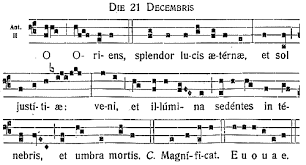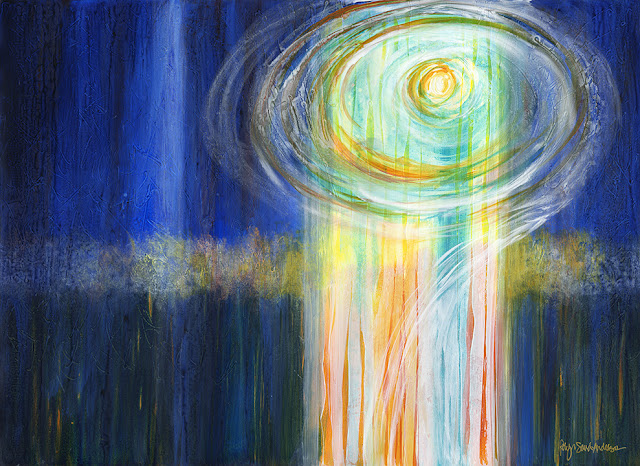
You can hear the antiphon sung in Latin and in English here
https://www.youtube.com/watch?v=PsegLwGvCbw
O Morning Star,
splendour of light eternal and sun of righteousness:
Come and enlighten those who dwell in darkness and the shadow of death.
O Morning Star (Luke 1:78)
Splendour of light eternal (“[Wisdom] is the brightness of eternal light.” Wisdom 7:26, following
the translation of the Vulgate)
Sun of righteousness (Malachi 4:2; Hebrews 3:20)
Come and enlighten those who dwell in darkness and the shadow of death (Luke 1:79)
During the season of Advent preachers never have to look very far to find examples of the very
real darkness in which we live. The world suffers from bloody wars, civil conflicts, political
turmoil, resurgent right-wing nationalism, poverty, environmental destruction. Watching the
news, we may well feel disorientation and helplessness – precisely the emotions that Isaiah and
the other prophets are trying to communicate to us.
The darkness is not only external. The great writers know that good and evil lie mixed in all of
us. In Following the Equator, Mark Twain wrote, “If the desire to kill and the opportunity to kill
came always together, who would escape hanging? In a book called The Fragility of Goodness,
Tzvetan Todorov asks why the Jews of Bulgaria were not sent off to the death camps and
discovers that the reasons were mixed, not purely altruistic by any means. He concludes that
“we can never draw a straight line and consider ourselves completely innocent.”
St. Paul expressed the ambiguities that lie deep within us when he said, “I do not understand
my own actions. For I do not do what I want, but I do the very thing I hate…I can will what is
right, but I cannot do it…Wretched man that I am! Who will rescue me from this body of
death?” (Romans 7:15, 18, 24). C.S. Lewis described our situation as one of rebellion against
God, writing that the human being is “not simply an imperfect creature who needs
improvement [but a] rebel who must lay down his arms” (Mere Christianity).
Advent requires a long hard look into the darkness. Like Isaiah, we must not shrink from seeing
how bad things really
From our condition of darkness, we cry to God for light. In his famous sermon, “The Weight of
Glory,” C.S. Lewis ponders a number of aspects of glory as it is found in the Scriptures. He
writes,
“Perhaps it seems rather crude to describe glory as the fact of being “noticed” by God.
But this is almost the language of the New Testament. St. Paul promises to those who
love God not, as we should expect, that they will know Him, but that they will be known
by Him (1 Cor. 8:3). It is a strange promise. Does not God know all things at all times?
But it is dreadfully re-echoed in another passage of the New Testament. There we are
warned that it may happen to anyone of us to appear at last before the face of God and
hear only the appalling words, “I never knew you. Depart from Me.” In some sense, as
dark to the intellect as it is unendurable to the feelings, we can be both banished from
the presence of Him who is present everywhere and erased from the knowledge of Him
who knows all. We can be left utterly and absolutely outside – repelled, exiled,
estranged, finally and unspeakably ignored. On the other hand, we can be called in,
welcomed, received, acknowledged. We walk every day on the razor edge between these
two incredible possibilities. Apparently, then, our lifelong nostalgia, our longing to be
reunited with something in the universe from which we now feel cut off, to be on the
inside of some door which we have always seen from the outside, is no mere neurotic
fancy, but the truest index of our real situation. And to be at last summoned inside
would be both glory and honour beyond all our merits and also the healing of that old
ache.”
C.S. Lewis, The Weight of Glory (Harper San Francisco, 1980), pp. 41-45.
Our hope that darkness will give way to light is grounded only in God. In the face of the world’s
darkness, all that is good and true and beautiful may seem too small, too weak, too fragile. The
good may find its life cut short, perhaps even crucified. Nevertheless, “the light shines in the
darkness and the darkness did not overcome it” (John 1:5).
Kevin+


Recent Comments